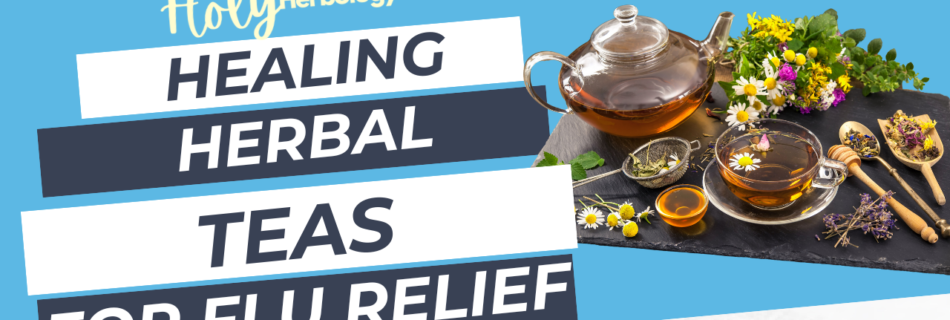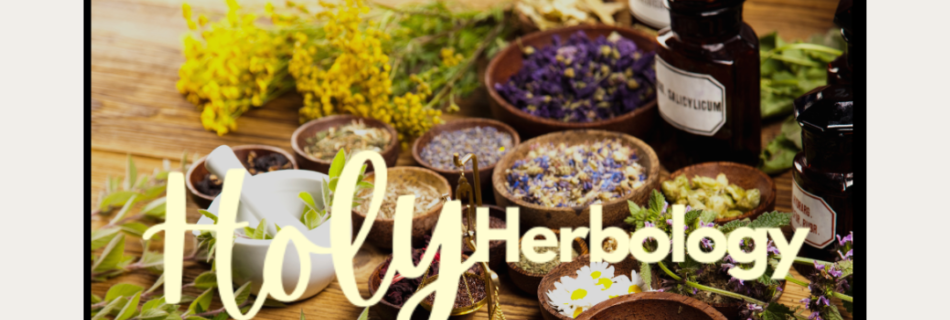The Healing Secrets Big Pharma Doesn’t Want You to Know: 6 Powerful Herbs to Replace Common Medications Naturally
Are We Being Kept in the Dark About Nature’s Remedies? There’s a world of healing waiting outside the walls of pharmacies— a natural alternatives to pharmaceuticals, yet we rarely hear about it. The truth is, many natural herbs could be as effective, or even more so, than costly pharmaceuticals. Why? Because nature offers an array of potent remedies to relieve stress, ease depression, and boost mental clarity. But this knowledge is often buried, rarely discussed, and certainly not encouraged by industries built on profit margins. While billions are poured into pharmaceuticals every year, herbal remedies that have been effective for centuries are often overlooked—or outright ignored. Could it be that natural solutions don’t align with profit-driven agendas? Knowledge is power. Knowledge is freedom. Knowledge is God. Holy Herbology is here to shed light on these hidden remedies—bringing powerful, science-backed herbal solutions to everyone willing to take their health back into their own hands. This is knowledge for the people, meant to be shared and used to empower and heal. Here’s the truth about six powerful herbs that offer alternatives to widely used medications and why we’re committed to defying the status quo to get this information out there. If you’re looking for natural, effective alternatives to mainstream medications, read on for the herbs the pharmaceutical industry doesn’t want you to know about. Want a practical start? Download our free guide on “5 Essential Herbs Every Household Needs” or refer to “Embrace Nature’s Healing Power: Top 5 Healing Herbs You Need to Know” . 1. Ashwagandha: A Natural Remedy for Stress Without the Side Effects of Anti-Anxiety Medications Ashwagandha is renowned for its adaptogenic properties, which help balance stress hormones and promote relaxation. Scientific studies confirm what traditional healers have long known: ashwagandha can reduce cortisol levels and alleviate stress without the cognitive decline, dependency, or foggy aftereffects of drugs like Xanax and Valium. Want to learn more? Check out more in-depth article on ashwagandha and its mood-boosting effects. 2. Rhodiola Rosea: A Safer Solution for Energy and Focus Than Prescription Stimulants The herb Rhodiola Rosea offers a natural lift in energy and focus, making it a remarkable alternative to stimulants like Adderall and Ritalin, which carry risks of increased heart rate, dependency, and insomnia. Rhodiola doesn’t rely on intense stimulation; instead, it gently enhances mental clarity and stamina. Looking for natural energy? Discover more about Rhodiola and its mental clarity benefits. 3. St. John’s Wort: Nature’s Antidepressant Kept Quiet by Big Pharma St. John’s Wort has been shown to alleviate mild to moderate depression, but unlike antidepressants like Prozac and Zoloft, it doesn’t come with harsh side effects like fatigue, weight gain, or loss of libido. Its natural compounds gently uplift the mood and are free from the dependency risks associated with pharmaceuticals. For more on natural mood support, check out this guide on mood-enhancing herbs. 4. Lavender: An Herbal Remedy for Sleep Without the Hangover of Sleeping Pills Lavender’s soothing effects make it a natural, non-addictive alternative to sleeping pills like Ambien and Lunesta, which often cause grogginess, dependency, and impaired memory. Lavender’s sedative properties help you fall asleep naturally, without the risks associated with pharmaceuticals. Looking for calm? Explore this full guide on herbs for better sleep. 5. Holy Basil (Tulsi): A Calm Mind Without Stimulants Holy Basil, also known as Tulsi, offers mental clarity and stress relief without the overstimulation of drugs like Modafinil. Often called the “Queen of Herbs,” Tulsi is used to promote emotional balance and reduce mental fog, naturally increasing focus without unwanted side effects. Curious about Tulsi? Read more about Holy Basil and its unique healing properties. 6. Lemon Balm: A Gentle Yet Powerful Alternative for Anxiety Common anti-anxiety medications like Buspirone often carry risks of dizziness, nausea, and dependency. In contrast, Lemon Balm is an all-natural anxiolytic that promotes calm and reduces mental chatter without unwanted side effects, making it perfect for easing mild anxiety. Find more relaxation tips in our article on calming herbal teas. Why Holy Herbology is Revealing These Secrets Big Pharma profits when natural solutions remain hidden, pushing costly, side-effect-laden drugs. At Holy Herbology, we’re on a mission to change that by revealing these herbal alternatives that provide real, side-effect-free relief. Knowledge is God, and it’s time to bring that knowledge to everyone—empowering people to reclaim their health with nature’s help. If this information speaks to you, help us spread the word. Safeguard it, share it, and use it as it was always intended to be: for the benefit of everyone. Ready to learn more? Explore Holy Herbology’s full collection of natural remedies and herbal wisdom. Did You Know? The Price We Pay for Profits Over People In recent years, the true priorities of Big Pharma have been exposed in ways that are difficult to ignore. Headlines have been filled with stories of profit-driven decisions and dubious practices, and millions are starting to question who truly benefits from the industry’s dominance over healthcare. At Holy Herbology, we believe in the power of community—where shared wisdom and care for one another come before profit. Here are some recent truths about Big Pharma that everyone should know: Remembering a Time of Community Care Over Competition There was a time when communities supported each other through knowledge, healing, and unity. People grew, gathered, and shared resources, herbal remedies, and folk wisdom freely, with a focus on supporting each other’s wellness. Survival wasn’t about competition; it was about cooperation. Imagine if that spirit returned—if each of us began sharing the knowledge we discovered and lifting each other up, rather than relying on a profit-driven industry for answers. At Holy Herbology, we believe it’s time to reclaim that heritage of natural, communal wellness. When we share what we know, support each other, and honor the wisdom that’s been with us all along, we can live better, healthier, and more connected lives. Want a practical start? Download our free guide on “5 Essential Herbs Every Household Needs” or refer to “Embrace Nature’s Healing …


